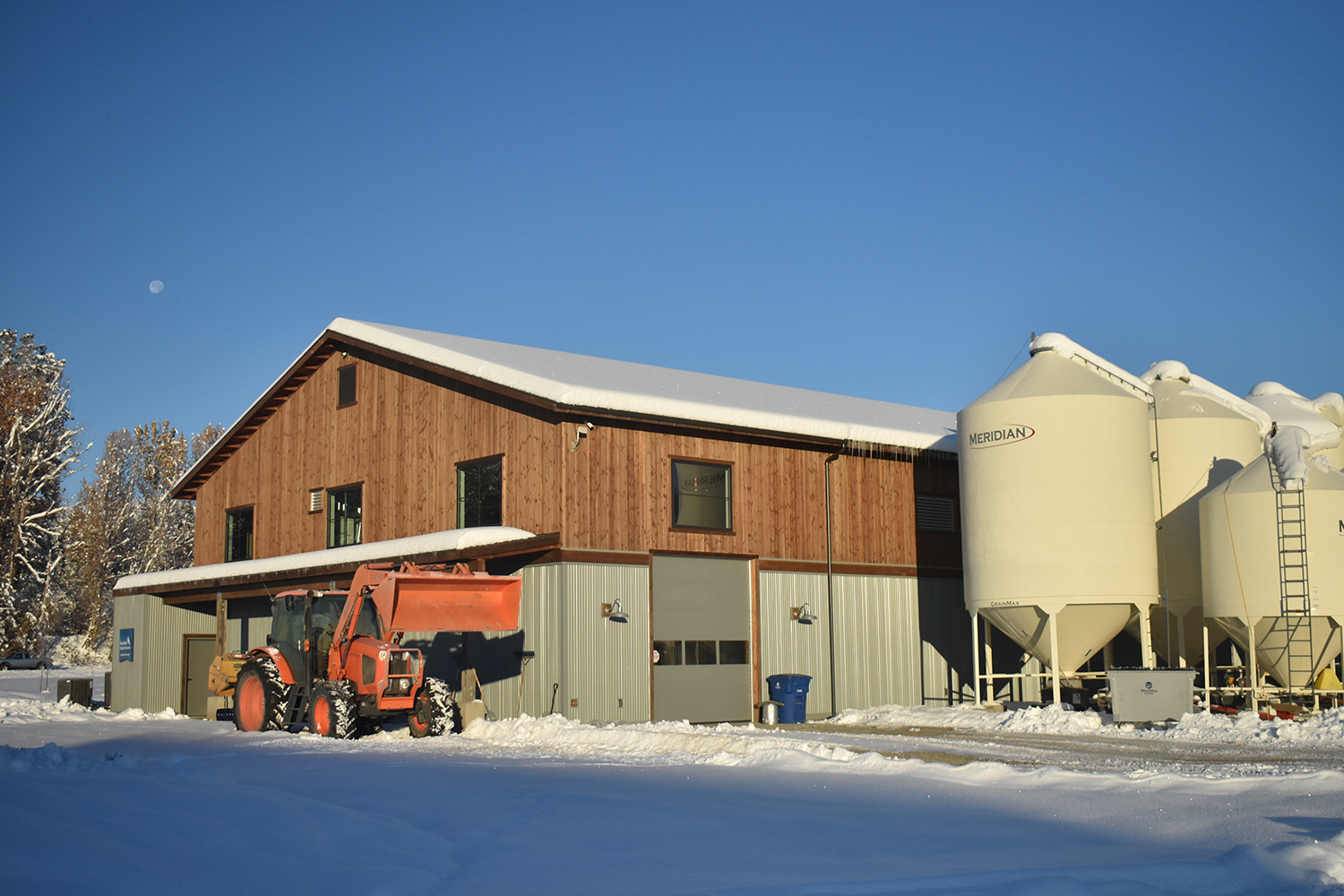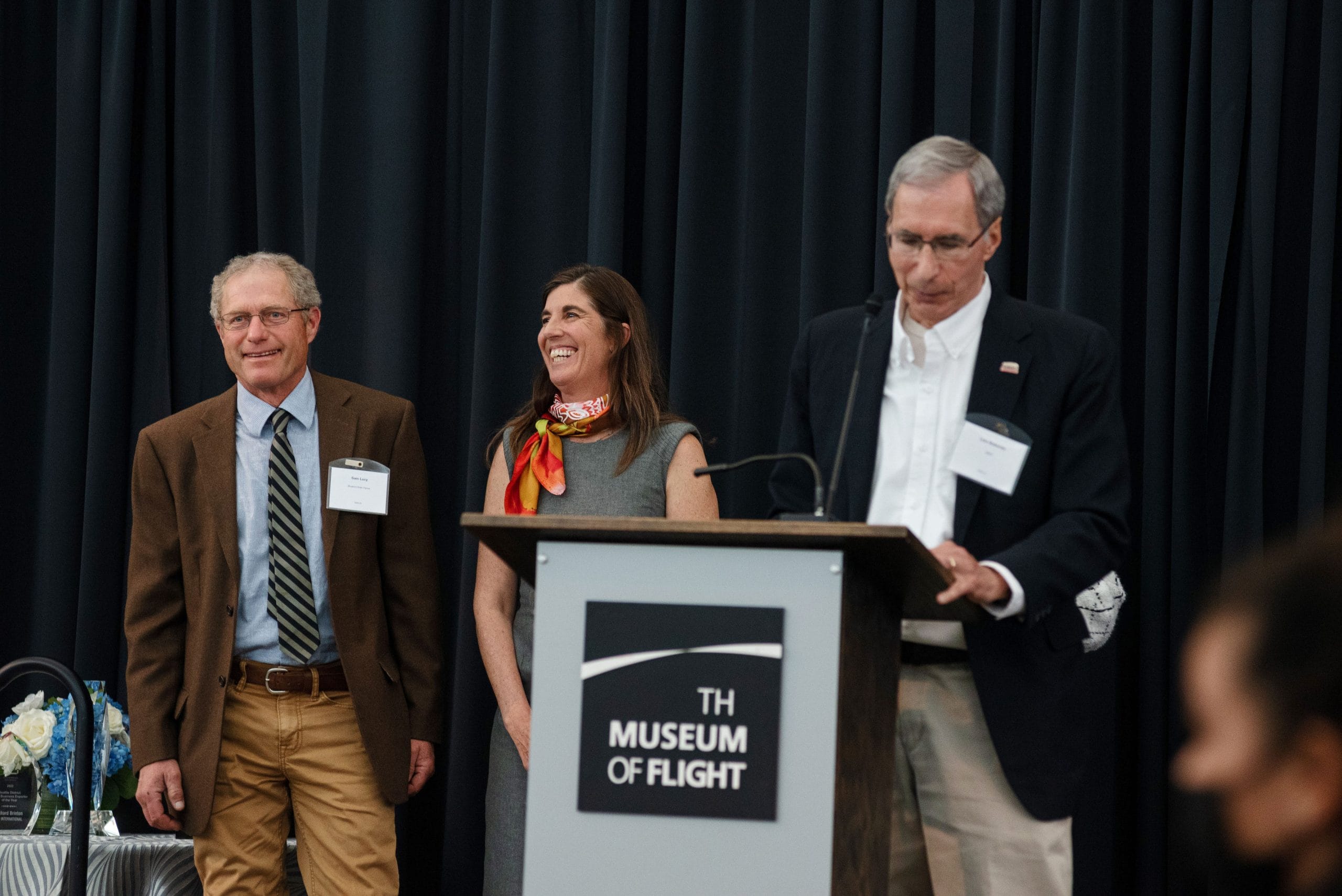Ashley Lodato, Bluebird Grain Farms staff writer. Photos by Bluebird Grain Farms.
It was logging that brought Bluebird Grain Farms Granary Manager Steve White to the Methow Valley in 1996 and it was farming that eventually brought him back. Steve was raised in Northern Idaho in a community that makes the Methow Valley seem metropolitan–only 438 people. After a career that involved logging, law enforcement, and mechanics, Steve discovered both farming and the Methow Valley through his wife, Sharee Holcomb White, a 4th generation Methow Valley resident whose family owned one of the first dairies in the valley.
Steve (who you may know as a past Liberty Bell High School football coach) ran the saw shop at Cascade Pipe in Twisp for years, but when store ownership changed he went back to Idaho and managed a saw shop there for a few years. But when Sharee’s mother got sick, Steve knew he wanted to come home. Serendipitously, Bluebird Grain Farms was looking for a millwright and granary manager. Steve had the skillset–chiefly, a strong work ethic. “I’ve found that logging and farming have a lot in common,” Steve says. “Hard work.”
Steve had lived in the Methow Valley for nearly a quarter century and says he had never heard of Bluebird Grain Farms. “I wish I would have years ago,” he says.
Bluebird resonates with Steve for many reasons, but one stands out: sense of purpose. “Sam, Brooke, and Bluebird have given me purpose in my working career,” he says. “I feel that most humans want to make a difference and I believe I can make a difference in people’s lives by providing the type of food that helps our society in so many ways.”
Steve also enjoys problem-solving, saying that every day brings the excitement and possibility of a new problem to solve. “I love learning about new things so I guess I’m in the perfect work place. I get to learn something new every day.”
The work environment at the granary doesn’t hurt, either, Steve says. “Sam and Brooke have created a special place to work. The people I work with are more than coworkers–we are actually a family.” His bosses are “ok to work for,” Steve says with a smile, his affection and respect for Brooke and Sam evident.

On a daily basis, Steve manages “what goes in and out of the processing room.” He cleans grain, bags it, and builds pallets as well as shipping and receiving product and managing inventory. When the millwright assistant, Dan Carroll, is not at work, Steve also mills grain into flour.
Ah yes, the flour. In hiring Steve, Bluebird Grain Farms got a two-for-one deal. Once Sharee got her hands on some of that Bluebird flour, the White family test kitchen opened for business. “Although I grew up baking yeast breads and muffins and cookies and quick breads with my mom I had never used 100% whole grains. So when Steve started bringing home Bluebird products I had no idea what to do with them,” Sharee says. “I did know that you cannot substitute whole grain flour for all purpose flour in a recipe and be successful. So I started researching whole grains and after learning all the health benefits of whole grains and whole grain flours I was so excited to start feeding my family these nutrient rich grains.”
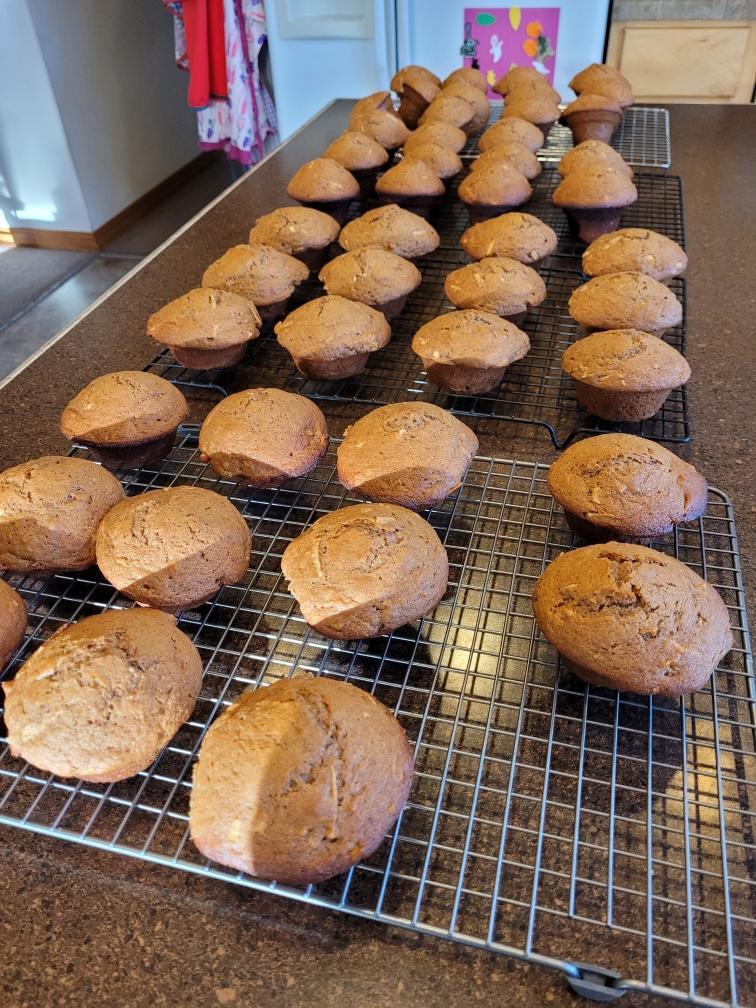 Sharee was no stranger to home-grown foods; she grew up on a 40-acre farm north of Winthrop, “in the midst of but not part of the Big Valley Ranch.” Sharee’s father, Walt Holcomb, worked at Okanogan County Electric Co Op for 35 years and her mom, known to many as “Mrs. Holcomb” was a secretary for the Methow Valley School District for 30 years. “But those were just their day jobs,” Sharee says. “The real work came in the form of raising three kids on a farm as self-sustaining as possible. However, we relied on the grocery store for all our baking ingredients, including flour.”
Sharee was no stranger to home-grown foods; she grew up on a 40-acre farm north of Winthrop, “in the midst of but not part of the Big Valley Ranch.” Sharee’s father, Walt Holcomb, worked at Okanogan County Electric Co Op for 35 years and her mom, known to many as “Mrs. Holcomb” was a secretary for the Methow Valley School District for 30 years. “But those were just their day jobs,” Sharee says. “The real work came in the form of raising three kids on a farm as self-sustaining as possible. However, we relied on the grocery store for all our baking ingredients, including flour.”
In the farm girl spirit, Sharee rolled up her sleeves and began learning about fresh farmed grains. “The whole grains were the easy part,” Sharee says. “They are great substitute for rice in any dish. My family especially loves my Potlatch Pilaf and beet salad with lemon vinaigrette on a hot summer night or lamb stew with Organic Einka & French Lentil Blend on a cold winter day.”
 As far as using whole grains in baking, Sharee says she was apprehensive until she stumbled across a You Tube video on 100% whole wheat bread with freshly milled grain. She was hooked. Once Sharee learned about all the grains and what they are best used for (for example, hard wheats are for yeast breads and soft wheat like Bluebird’s Sonora is for baked goods like cakes, cookies and quick breads, while ancient grains can be used in combination with either or by themselves in quick breads) she’s a woman on a mission. “I have been converting all my families recipes that have been passed down to me over the years,” she says.
As far as using whole grains in baking, Sharee says she was apprehensive until she stumbled across a You Tube video on 100% whole wheat bread with freshly milled grain. She was hooked. Once Sharee learned about all the grains and what they are best used for (for example, hard wheats are for yeast breads and soft wheat like Bluebird’s Sonora is for baked goods like cakes, cookies and quick breads, while ancient grains can be used in combination with either or by themselves in quick breads) she’s a woman on a mission. “I have been converting all my families recipes that have been passed down to me over the years,” she says.
Sharee has some favorite grains, but it depends on the recipe. “Organic Einkorn Flour makes tasty muffins and pancakes, but the nuttiness of Organic Emmer Flour makes a great artisan loaf or brownies and my family loves a honey hard red wheat sandwich loaf.”
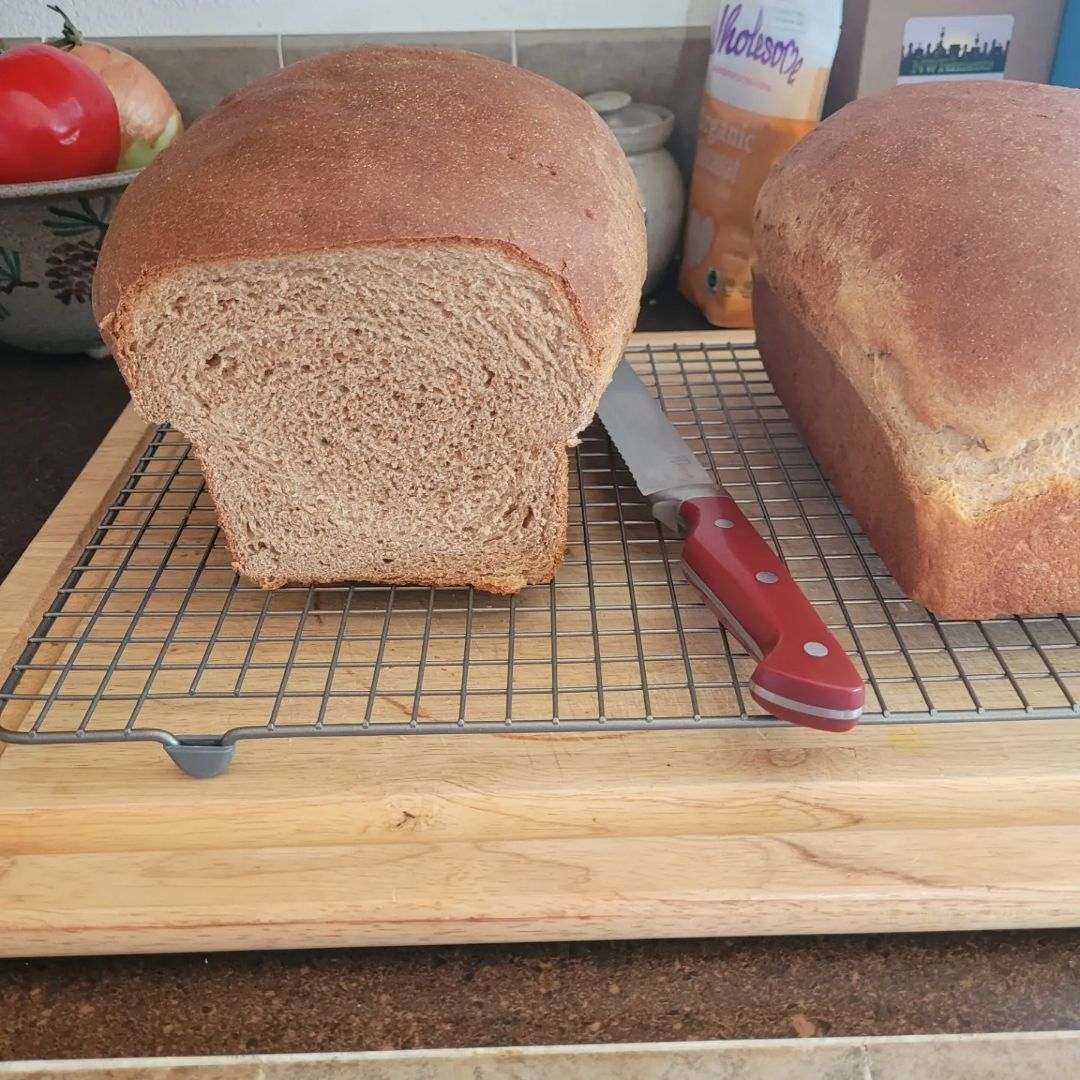 Sharee’s family isn’t her only test audience. According to Joy Randall, Bluebird Grain Farms Marketing Coordinator, “Sharee is an excellent baker and is always sending Steve with bread and treats for us!” The test products get high marks from the office staff.
Sharee’s family isn’t her only test audience. According to Joy Randall, Bluebird Grain Farms Marketing Coordinator, “Sharee is an excellent baker and is always sending Steve with bread and treats for us!” The test products get high marks from the office staff.
Sharee’s favorite recipes rely on the same thing as Steve’s: hard work. “I’ve found that if I put a little bit of time, effort, and knowledge together the possibilities are endless, using a food product that is not only very healthy and beneficial, but tasty as well.”
When they’re not baking or managing granaries, the Whites love to spend time with their children Levi, Brayden, and Carly engaged in activities like fishing, hunting, and camping.
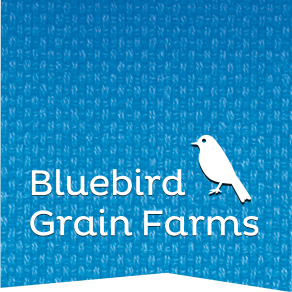
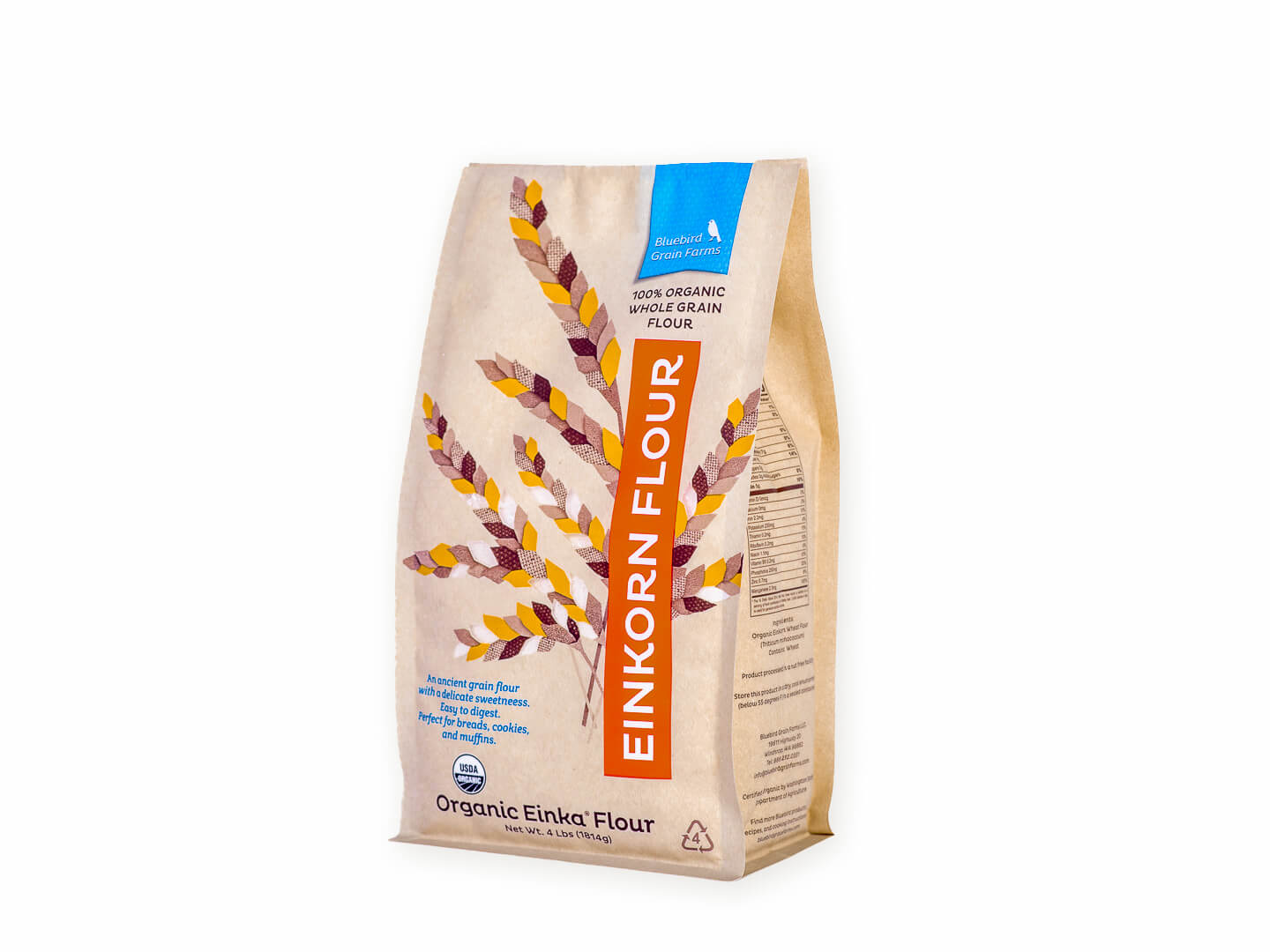
 Our daughter Larkin and her friend Rupert Dyer saved my bacon a few weeks ago; the day before I was to travel to Las Vegas to the Fancy Food Show I tested positive (yes for the first time) for COVID. With a Bluebird Grain Farms booth set up and product waiting in the wings, Larkin and Rupert raced to my rescue. Before I had a chance to consider canceling the show, Larkin responded “I got this Mom,” and off they went to Vegas from Eugene, Oregon.
Our daughter Larkin and her friend Rupert Dyer saved my bacon a few weeks ago; the day before I was to travel to Las Vegas to the Fancy Food Show I tested positive (yes for the first time) for COVID. With a Bluebird Grain Farms booth set up and product waiting in the wings, Larkin and Rupert raced to my rescue. Before I had a chance to consider canceling the show, Larkin responded “I got this Mom,” and off they went to Vegas from Eugene, Oregon.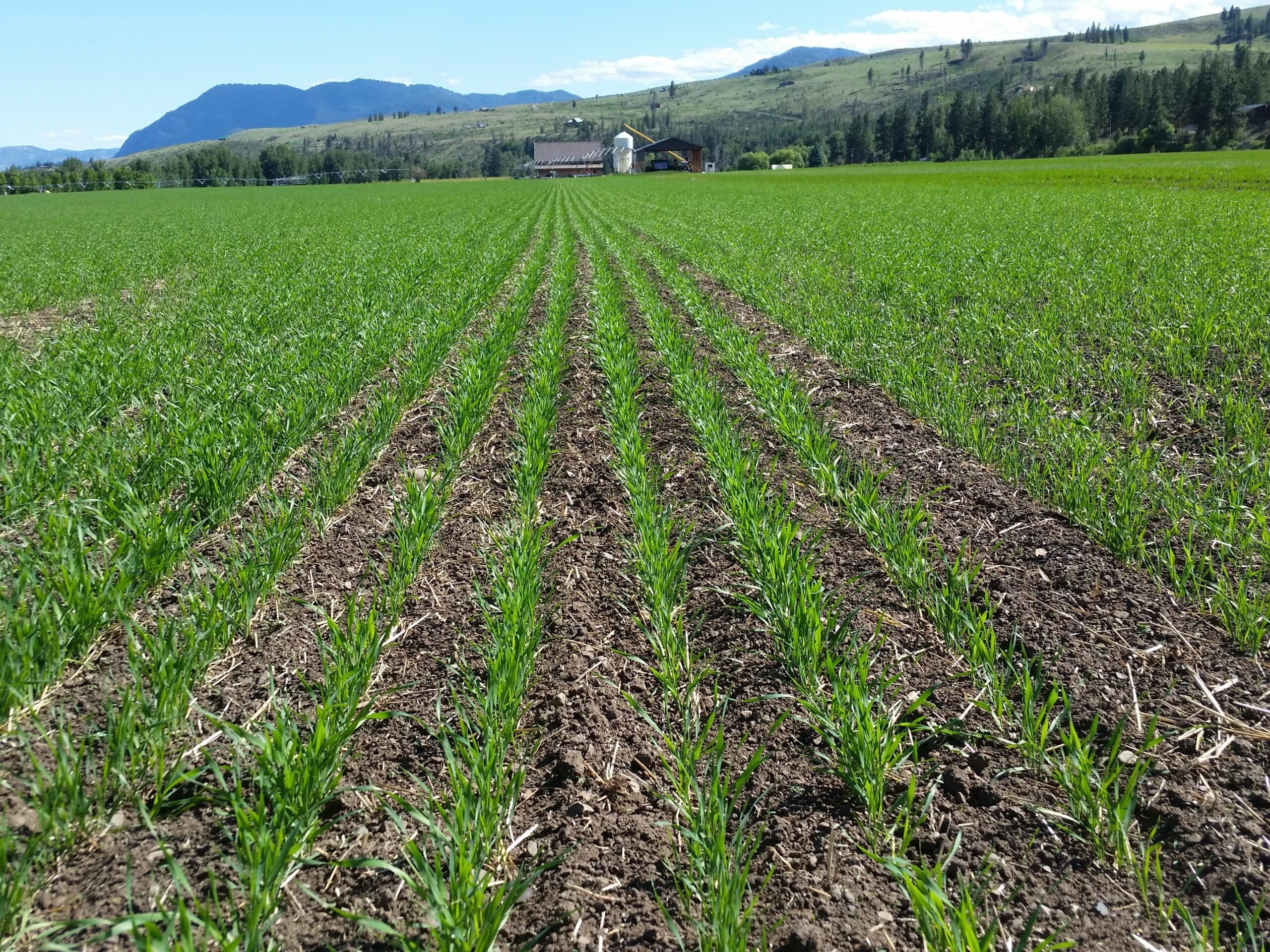
 Nationally, The National Sustainable Agricultural Association is doing some hard work. NSAC advocates for federal policy reform for the sustainability of food systems, natural resources, and rural communities. They are located in Washington DC and are actively working on making policy changes to the Farm Bill to include:
Nationally, The National Sustainable Agricultural Association is doing some hard work. NSAC advocates for federal policy reform for the sustainability of food systems, natural resources, and rural communities. They are located in Washington DC and are actively working on making policy changes to the Farm Bill to include: In Washington State,
In Washington State,  In Okanogan County:
In Okanogan County: 
 Sharee was no stranger to home-grown foods; she grew up on a 40-acre farm north of Winthrop, “in the midst of but not part of the Big Valley Ranch.” Sharee’s father, Walt Holcomb, worked at Okanogan County Electric Co Op for 35 years and her mom, known to many as “Mrs. Holcomb” was a secretary for the Methow Valley School District for 30 years. “But those were just their day jobs,” Sharee says. “The real work came in the form of raising three kids on a farm as self-sustaining as possible. However, we relied on the grocery store for all our baking ingredients, including flour.”
Sharee was no stranger to home-grown foods; she grew up on a 40-acre farm north of Winthrop, “in the midst of but not part of the Big Valley Ranch.” Sharee’s father, Walt Holcomb, worked at Okanogan County Electric Co Op for 35 years and her mom, known to many as “Mrs. Holcomb” was a secretary for the Methow Valley School District for 30 years. “But those were just their day jobs,” Sharee says. “The real work came in the form of raising three kids on a farm as self-sustaining as possible. However, we relied on the grocery store for all our baking ingredients, including flour.” As far as using whole grains in baking, Sharee says she was apprehensive until she stumbled across a You Tube video on 100% whole wheat bread with freshly milled grain. She was hooked. Once Sharee learned about all the grains and what they are best used for (for example, hard wheats are for yeast breads and soft wheat like
As far as using whole grains in baking, Sharee says she was apprehensive until she stumbled across a You Tube video on 100% whole wheat bread with freshly milled grain. She was hooked. Once Sharee learned about all the grains and what they are best used for (for example, hard wheats are for yeast breads and soft wheat like  Sharee’s family isn’t her only test audience. According to Joy Randall, Bluebird Grain Farms Marketing Coordinator, “Sharee is an excellent baker and is always sending Steve with bread and treats for us!” The test products get high marks from the office staff.
Sharee’s family isn’t her only test audience. According to Joy Randall, Bluebird Grain Farms Marketing Coordinator, “Sharee is an excellent baker and is always sending Steve with bread and treats for us!” The test products get high marks from the office staff.